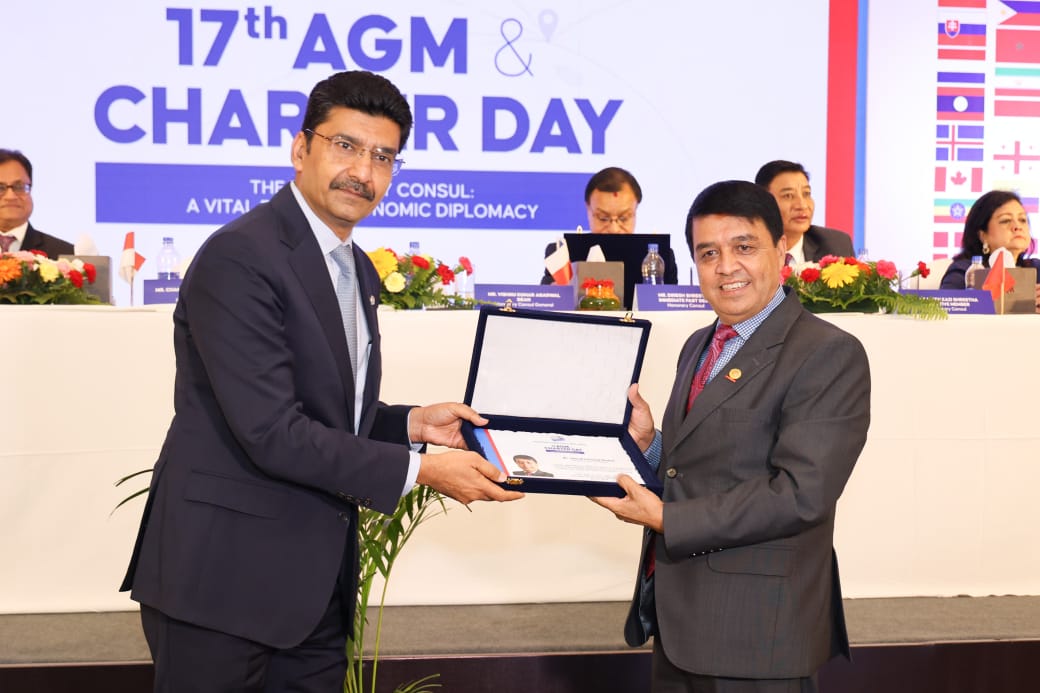“Economy is going downhill but State remains lackadaisical”

KATHMANDU, APRIL 11: President of the Federation of Nepalese Chamber of Commerce and Industry (FNCCI), Chandra Prasad Dhakal, has said that the health of the national economy is alarmingly poor. He made such a statement while speaking at the 58th Annual General Meeting (AGM) of the FNCCI held yesterday in the capital. “For the last two years, the economic health of the country has been deteriorating fast. It is because of various reasons like less export but more import, low capital expenditure, unfriendly investment climate, etc.
“The money flowing into the country annually from the export business is a mere Rs 100 billion while the outflow of capital by Nepali students for abroad study stands at as much as Rs 80 billion. Similarly, the level of capital expenditure is so low that the cost of financial management is double that of it.” he justified by adding,” The investment climate of the country is also strictly unfriendly.”
According to him, both foreign and domestic investors have very low levels of confidence when it comes to pouring their money into any potential sector of the national economy. “This is clearly reflected by a meagre share of Foreign Direct Investment (FDI) at 0.2 per cent in the Gross Domestic Product (GDP) and the accumulation of a hefty Rs 600 billion as loanable funds in banks.”
Chieftain of the apex body of the Nepali business fraternities also claimed that the only reason behind the positive state of the external sector of the economy is remittances. “It is solely the money sent by migrant Nepali workers that is keeping the country’s shaky economy afloat. Nevertheless, remittance cannot sustain the national economy in the long run.”
Stating that the private sector has, time and again, recommended viable measures/tools to fix the economy, president Dhakal claimed, “The government is simply overlooking our recommendations for economic revival as they have not been incorporated in major annual economic policy documents like monetary policy and the national budget.”

"There are mixed results in half-yearly budget progress"

Total government spending amounts to Rs. 667.60 billion in 6 months

"There are promising signs of economic recovery"

Finance Minister Paudel directs to meet revenue target

Suspended Chief Secretary Aryal acquitted in corruption case

Dhakal elected HCCN Dean

Price of salt goes up







Feedback